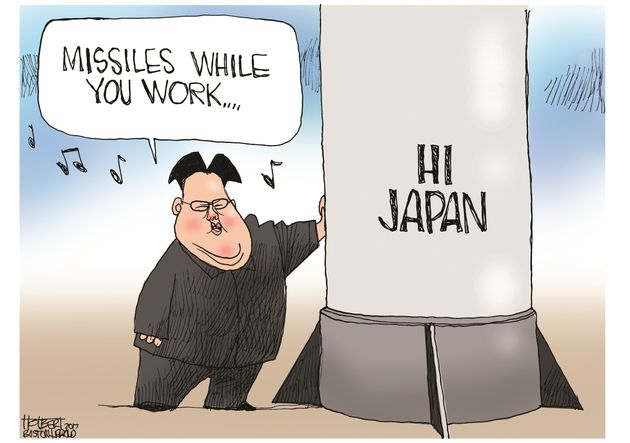Victor Davis Hanson "Think of the Korean Peninsula turned upside down.
Imagine if there were a South Korean dictatorship that had been in power, as a client of the United States since 1953.
"Imagine also that contemporary South Korea was not the rich, democratic home of Kia and Samsung. Instead, envision it as an unfree, pre-industrialized and impoverished failed state, much like North Korea.
"Further envision that the U.S. had delivered financial aid and military assistance to this outlaw regime, which led to Seoul’s possessing several nuclear weapons and a fleet of long-range missiles.
"Next, picture this rogue South Korean dictatorship serially threatening to incinerate its neighbor, North Korea — and imagine that North Korea was ruled not by the Kim dynasty but by a benign government without nuclear weapons.
"Also assume that the South Korean dictatorship would periodically promise to wipe out Chinese cities such as Shanghai and Beijing. The implicit message to the Chinese would be that the impoverished South Koreans were so crazy that they didn’t care whether they, too, went up in smoke — as long a dozen of their nuclear-tipped missiles could blow up Chinese cities and paralyze the second-largest economy in the world. Assume that these South Korean threats had been going on without consequences for over a decade.
"Finally, in such a fantasy scenario, what if the United States falsely claimed ignorance of much of its South Korean client’s nuclear capability and threats?
"America instead would plead that it regretted the growing tension and the reckless reactions of China to the nuclear threats against it. Washington would lecture China that the crisis was due in part to its support for its North Korean ally.
For effect, the United States would occasionally issue declarations of regret and concern over the situation — even as it warned China not to do anything to provoke America’s provocateur ally.
"In such a fantasy, American security experts and military planners would gleefully factor a roguish nuclear South Korea into U.S. deterrent strategy. The Pentagon would privately collude with the South Korean dictatorship to keep the Chinese occupied and rattled, while the U.S. upped shipments of military weaponry to Seoul and overlooked its thermonuclear upgrades." . . .











